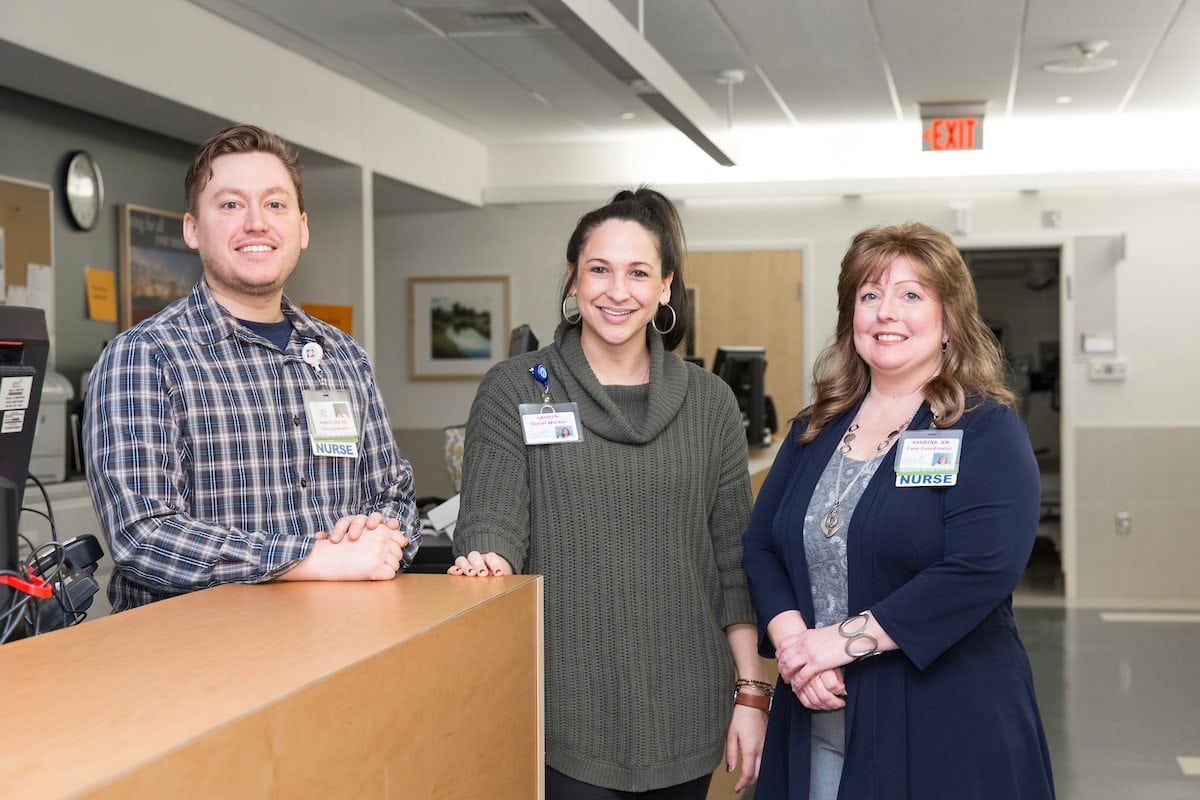<< Back
Providing Health Care Goes Beyond Medicine

March 27, 2018
Midstate Joins Project to Address the Social Underpinnings of Health
A medical history can reveal health risks that may help providers anticipate problems and provide treatment that offers the best outcome.
In the Emergency Department at MidState Medical Center, a survey asking patients about their access to stable housing, health insurance, a primary care provider, a ride to the doctor, help at home, and money to buy nutritious food is providing even more insight into why some patients get sicker and suffer more health complications.
“We recognize that up to 75 percent of patient outcomes revolve around external economic and social conditions and individual behaviors,” said Greg Jones, Hartford HealthCare’s vice president of Community Health and Engagement. “By taking a look at the root causes of these conditions, we are able to use our resources and develop programs and activities that address these factors.’’
To look beyond the chart, MidState Medical Center is among four Connecticut hospitals participating in the Connecticut Social Health Initiative, a project of the Connecticut Hospital Association that asks hospitals to test different approaches to addressing the social factors that influence health and illness. The program is funded with a grant from the Connecticut Health Foundation.
“We know that housing, transportation, food security, and other social factors have a big influence on patients’ health outcomes, so it’s important that identifying these needs become part of medical care,” said Tiffany Donelson, vice president of Program at the Connecticut Health Foundation. “By testing different approaches to identifying these needs in health care settings, Connecticut hospitals will be able to determine what models are most effective and how to best incorporate them into their care.”
Sabrina Thompson, care coordinator in Care Management at MidState, says one problem in her community is that many patients do not have a primary care doctor because they don’t have health insurance.
“Our community has a very large working class population and a lot of the members don’t receive insurance through their employers or are immigrant workers who lack insurance,” Thompson said.
Another common issue seen in the MidState Emergency Department is elderly patients who have repeated health issues because they do not have enough support at home.
“We connect with the HHC Center for Healthy Aging to work with patients and give them more community resources, whether its transportation, special programs, or other types of assistance. In one instance, we were able to help a patient who was in an unsafe situation at home by finding him first-floor housing with more resources and arranging for a doctor to visit him at home.”
Patients who come to the MidState ED are asked to fill out a questionnaire to determine whether their health is affected by external or social factors.
Patients who need a primary care doctor may be referred to the local community health center. Thompson said the center is very responsive and that patients usually are able to see a physician within a week. Bristol Hospital, Saint Mary’s Hospital in Waterbury, and Day Kimball Hospital in Putnam are also participating in the initiative.
“We are very proud to partner with the CHA and other local community hospitals on this initiative,” said Gary Havican, president of the Central Region. “It is important for us to listen to the needs of the community we serve and continue looking at ways we can provide them the best possible care specific to their needs.”